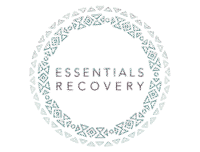Stress is a natural part of life, and in recovery, it can feel even more intense. Whether it’s emotional, physical, or situational, stress is often one of the biggest triggers for relapse. In early sobriety, the nervous system is still healing, relationships are shifting, and daily responsibilities may feel overwhelming. Over time, stress doesn’t disappear—it simply changes shape. What matters most is how you respond to it.
Learning healthy coping mechanisms is essential to long-term recovery. These strategies give you tools to manage discomfort, navigate challenges, and stay grounded when life gets tough. While substance use may have once been your default way to cope, recovery is an opportunity to build new patterns that support healing rather than harm.
Developing positive coping strategies takes practice. It involves self-awareness, intention, and sometimes a little trial and error. But the more you integrate healthy responses into your daily life, the more automatic they become. Here are key approaches that can help you handle stress in recovery while protecting your sobriety and strengthening your well-being.
Acknowledge and Accept the Stress
The first step to managing stress in recovery is simply acknowledging that it exists. Many people in recovery have a history of avoiding, numbing, or denying emotional discomfort. But healing requires the opposite—facing what’s present with honesty and compassion.
When you recognize stress without judgment, you create space to respond instead of react. Naming your feelings, whether it’s anxiety, frustration, fear, or sadness, helps bring clarity. It also reminds you that stress is a normal response, not a failure or sign of weakness.
Acceptance doesn’t mean resignation. It means acknowledging reality so you can take meaningful action. You don’t have to like what you’re feeling to allow it to exist. And in that space of awareness, you can begin to choose a healthier path forward.
Practice Deep Breathing and Grounding
When stress kicks in, the body often moves into fight-or-flight mode. Heart rate increases, breathing becomes shallow, and muscles tighten. In these moments, grounding practices and breathwork can be powerful tools to regulate your nervous system.
Deep breathing helps calm the mind and body. Try inhaling slowly through your nose, holding for a few seconds, and then exhaling through your mouth. Repeating this cycle a few times can help bring your attention back to the present and reduce feelings of panic or overwhelm.
Grounding techniques involve engaging your senses to connect with your surroundings. You might focus on the texture of an object in your hand, the sounds in the room, or the feeling of your feet on the floor. These simple acts help interrupt racing thoughts and provide a sense of safety and control.
Engage in Physical Movement
Exercise is one of the most effective ways to manage stress, and it’s also a powerful ally in recovery. Physical movement helps release endorphins, regulate mood, and process pent-up emotions. It doesn’t have to be intense or time-consuming to be beneficial.
Walking, stretching, dancing, swimming, yoga, and even gentle movement like gardening can help reduce tension and improve focus. The goal isn’t to become a fitness expert—it’s to build a habit of caring for your body in a way that supports emotional balance.
Consistency is more important than intensity. Moving your body regularly, even in small ways, creates a healthy outlet for stress and reinforces a sense of agency in your recovery.
Create a Supportive Daily Routine
Structure is a powerful buffer against stress. A predictable routine helps regulate your internal clock, improve sleep, and create a sense of stability. When life feels chaotic or uncertain, your routine can be a calming anchor.
Start by identifying a few key habits that support your recovery and reduce stress. This might include waking up and going to bed at consistent times, setting aside moments for meals, planning time for reflection or journaling, and scheduling regular check-ins with your support system.
Routines don’t need to be rigid, but they should be intentional. Having structure helps prevent decision fatigue, increases your sense of control, and makes it easier to maintain other healthy coping strategies.
Stay Connected to Support Systems
Social support is one of the most powerful protective factors in recovery. Isolation tends to amplify stress, while connection helps you feel seen, supported, and safe. Whether it’s a friend, sponsor, therapist, or support group, having someone to talk to can shift your entire experience of stress.
Connection doesn’t always have to mean deep conversation. Sometimes it’s just about being around people who understand you, share your values, or bring a sense of lightness to your day. Relationships built on honesty, respect, and mutual support are essential to staying grounded.
It’s also okay to ask for help. Reaching out doesn’t make you a burden—it means you’re taking care of yourself. When stress starts to build, letting someone in can offer fresh perspective, emotional relief, and a reminder that you don’t have to carry it all alone.
Express Yourself Creatively
Creative expression is a healthy and productive way to process emotions, especially during times of stress. Whether or not you see yourself as artistic, activities like drawing, writing, music, or crafts can help you move through difficult feelings without turning to old patterns.
Writing in a journal, painting how you feel, or playing an instrument can help externalize internal tension. These outlets provide a space to express what words sometimes can’t capture and allow emotions to be released safely and constructively.
You don’t have to share your work or aim for perfection. The act of creating is enough. Giving your emotions a voice through art is an empowering way to validate your experience and take control of your emotional landscape.
Use Mindfulness and Meditation
Mindfulness is the practice of staying present and observing your thoughts and feelings without judgment. It teaches you how to witness stress without becoming overwhelmed by it. Over time, mindfulness can help you develop greater emotional resilience and reduce reactivity.
Meditation, even in small doses, can create space between a stressful trigger and your response. Guided meditations, body scans, or silent sitting practices can help calm your thoughts and reconnect you to your center.
Apps, online videos, and local groups can support you in building a mindfulness habit. As with most coping tools, consistency matters more than intensity. A few minutes of presence each day can shift your entire relationship to stress.
Set Boundaries to Protect Your Energy
Stress often increases when your boundaries are unclear or ignored. In recovery, learning to say no and protect your time, energy, and emotional space is crucial. This might mean declining social events that feel overwhelming, limiting contact with toxic individuals, or setting aside time for yourself.
Boundaries help you maintain a sense of safety and autonomy. They’re not about shutting people out—they’re about creating conditions in which you can thrive. Setting and enforcing boundaries may feel uncomfortable at first, especially if people are used to the old you. But with practice, boundaries become a form of self-respect and a key part of stress management.
Listening to your gut, honoring your limits, and communicating clearly with others all help you avoid burnout and stay focused on your recovery goals.
Focus on What You Can Control
One of the most stressful parts of life is trying to manage things outside your control. In recovery, it’s important to learn how to shift your focus inward—toward what you can influence, rather than what you can’t.
This includes your thoughts, your reactions, your decisions, and your self-care. While you can’t always control other people, outcomes, or external events, you can choose how you respond and what you prioritize. Shifting your attention toward action and away from rumination can reduce anxiety and increase empowerment.
When you feel overwhelmed, pause and ask yourself what’s within your power right now. Even small steps—like making a phone call, going for a walk, or writing down your feelings—can help you regain a sense of control and direction.
Nourish Your Body and Rest
Physical health and emotional health are deeply connected. When your body is undernourished, dehydrated, or sleep-deprived, stress becomes harder to manage. Recovery offers a chance to rebuild those foundations and create habits that support long-term balance.
Eating nourishing meals, staying hydrated, and getting regular sleep all contribute to your ability to cope with life’s challenges. When you take care of your body, you support your brain chemistry, emotional regulation, and decision-making capacity.
Rest isn’t just about sleep—it’s also about taking breaks, slowing down, and honoring your need for quiet or solitude. Giving yourself permission to rest is an act of self-compassion and a necessary part of recovery.
Final Thoughts
Stress is an unavoidable part of life, but it doesn’t have to control you. In recovery, developing healthy coping mechanisms gives you the tools to face discomfort with strength, wisdom, and grace. These strategies don’t just help you avoid relapse—they support a deeper kind of healing that touches every part of your life.
By practicing mindfulness, building supportive routines, expressing yourself creatively, and staying connected, you create a recovery that is both sustainable and empowering. Each time you handle stress in a healthy way, you reinforce your resilience and remind yourself of the strength you’ve built.
Recovery isn’t about never feeling stressed—it’s about learning to navigate stress without losing yourself. And every time you do, you take another step toward lasting wellness and freedom. Call us today at 855-509-1697.



